“To Whom It May Concern” is a conventional formal generic salutation used in letters or correspondence where the name and title of the addressee or recipient are unknown.
It is acceptable in formal or professional correspondence. “To Whom” and “Concern” refer to whoever the recipient is; “It” refers to the correspondence; and “May” implies the probability that any party may receive it.
It is a known traditional salutation, although it is slowly becoming obsolete. It allows you to write a letter that can be received and accepted by different recipients. Such a generic salutation allows you to write letters that have reusability, such as recommendation letters.
The five words are capitalized when included in any correspondence. This type of letter is used when you don’t know the name or appropriate title to refer to the recipient. With this salutation, you can avoid misspelling their name or mislabeling their gender.
However, despite the flexibility of a To Whom It May Concern letter, you should always aim to determine the name and appropriate title to use when addressing your recipients. Use this salutation in a letter only when it’s necessary. This article will show you when to use it and how to write it in a letter.
When to Use “To Whom It May Concern” Salutation
It is acceptable to use this type of letter in business letters, recommendation letters, and other situations where it is hard to determine the name and title of the recipient.
Below are common scenarios when you can utilize this type of salutation:
If you are unable to find the hiring manager’s name
If you cannot find the hiring manager’s name despite extensive research, you can use a generic salutation. This is common with job application cover letters. Also, if you are not sure who will review your letter, you can use this type of letter.
If the hiring managers are a group of people
When sending your job application to a group of people, such as a recruiting committee or panel, you can use the letter. This is applicable since you cannot name all the group members in the salutation. Therefore, assigning a generic salutation ensures the letter does not appear to be addressed to a single person.
In recommendation/reference letters for someone else
Such greetings are suitable for recommendation or reference letters for a former employee, student, or tenant. This is because, in most cases, you will not be certain of the recipient of the letter.
To lodge a formal complaint
Occasionally, it can be challenging to determine who is responsible for what in an organization or company. This can be problematic, especially when you have to file a formal complaint. Therefore, in such cases, you can use this salutation. This prevents a situation where you address the letter to the wrong contact person. This allows you to write a letter that can be forwarded directly to the person responsible for the complaint.
In a letter of introduction
When introducing yourself or someone else to another person or a group of people whom you do not know, you can use a generic salutation. For example, once you receive a quote and want to respond, you can use a generic salutation.
In a prospecting letter
Generic salutations can be used in prospecting letters when contacting potential clients. In such situations, the name of your prospect, the decision maker, and their position are often unknown. Thus, using this type of letter allows for seamless correspondence where there is no misunderstanding as to who should receive the letter.
Company feedback or suggestions
Feedback and suggestions are normally beneficial if they get to the right person. When sending your feedback or suggestions, you may not know who is responsible for the matter you are addressing. So, a generic salutation is a good way to ensure you reach the relevant department.
When Not to Make Use of “To Whom It May Concern”
A “To Whom It May Concern” greeting is not always appropriate. The following are situations when you should avoid using it:
When writing a cover letter
A cover letter for a job application is meant to distinguish you from other candidates by exhibiting professionalism and a genuine interest in the position. Using a generic salutation is not a good way of doing this. So, even if you do not know the name of the hiring manager, you should not use a generic greeting.
Personal letters
If you are writing a personal letter to someone, it is best to address them by name, especially if you have an established relationship with them. Using “to whom it may concern” can make the letter seem impersonal and distant.
Free Templates
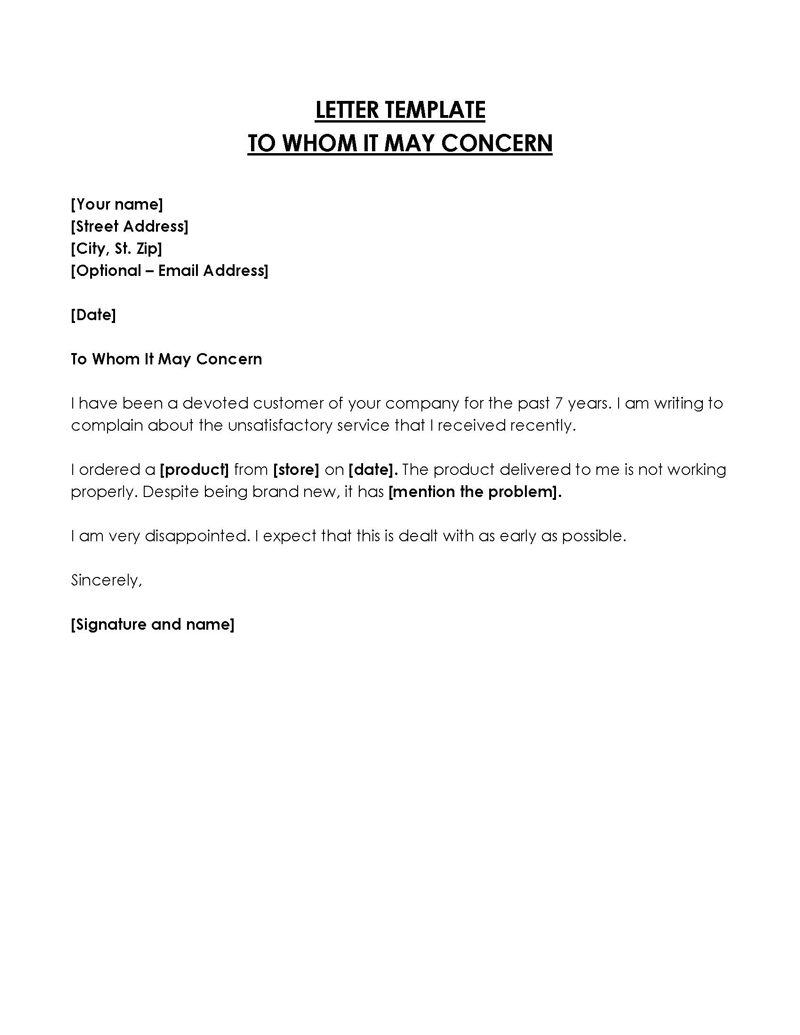
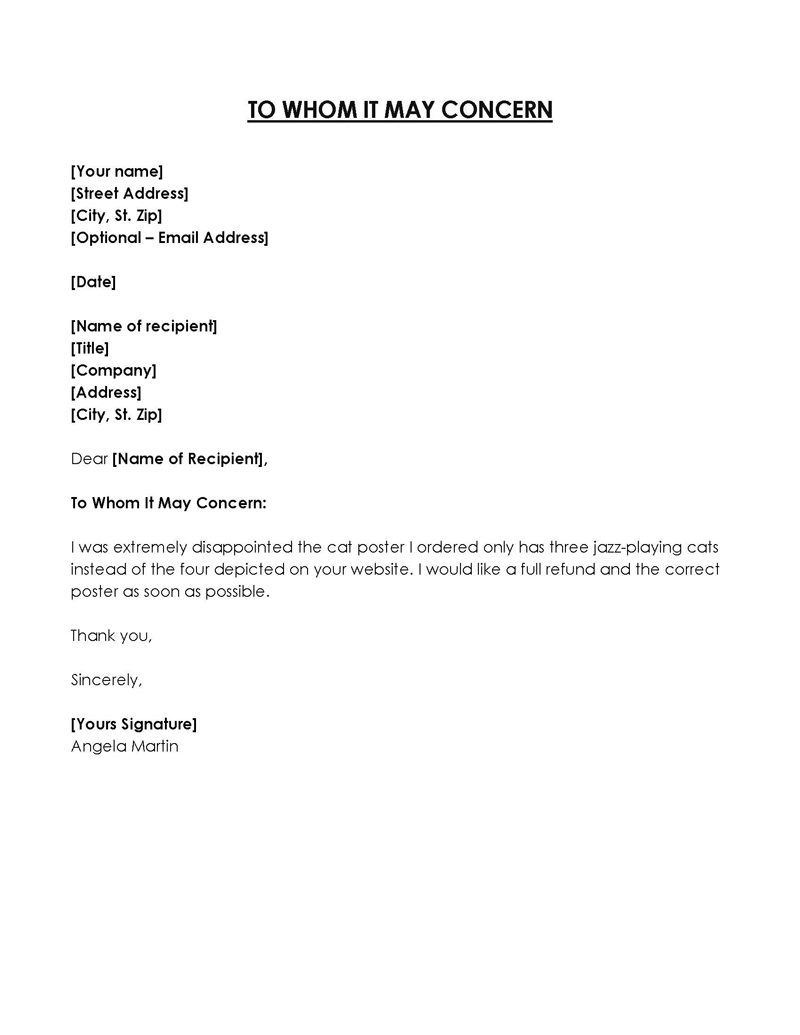
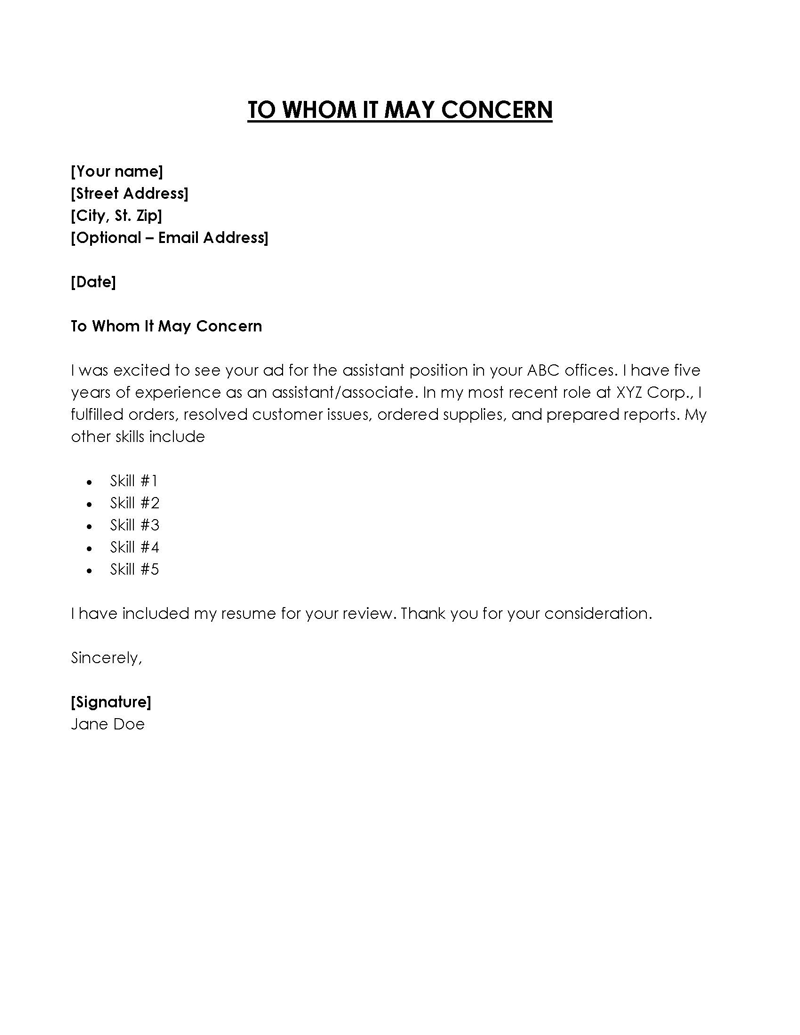
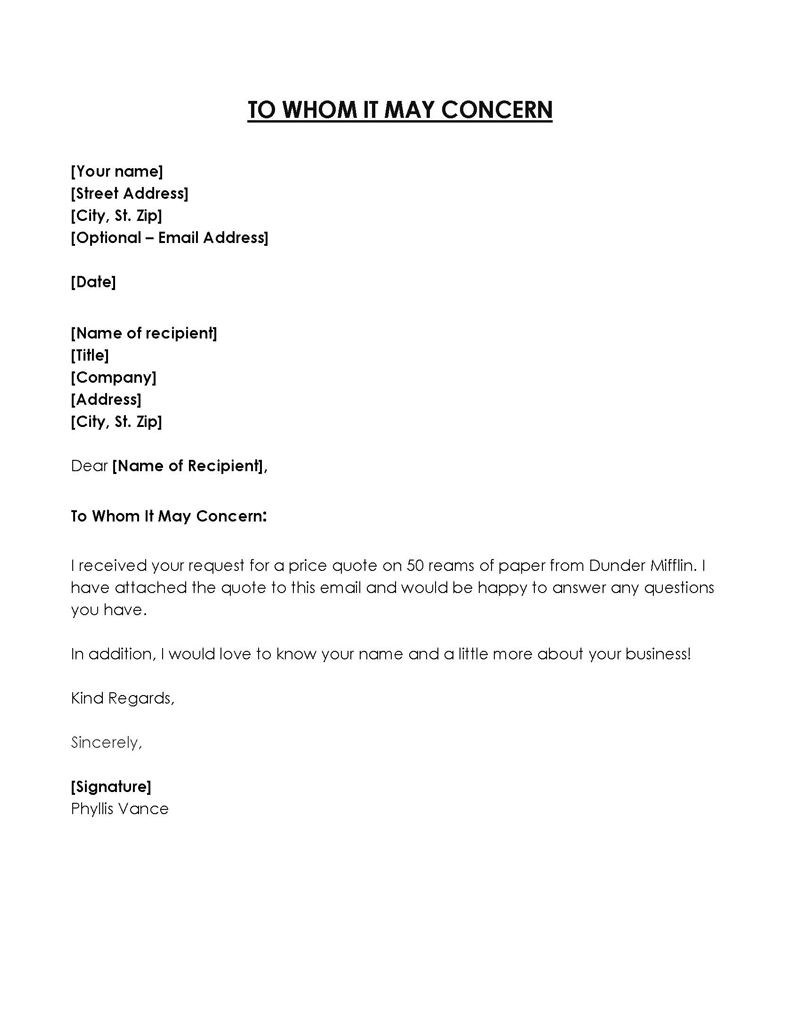
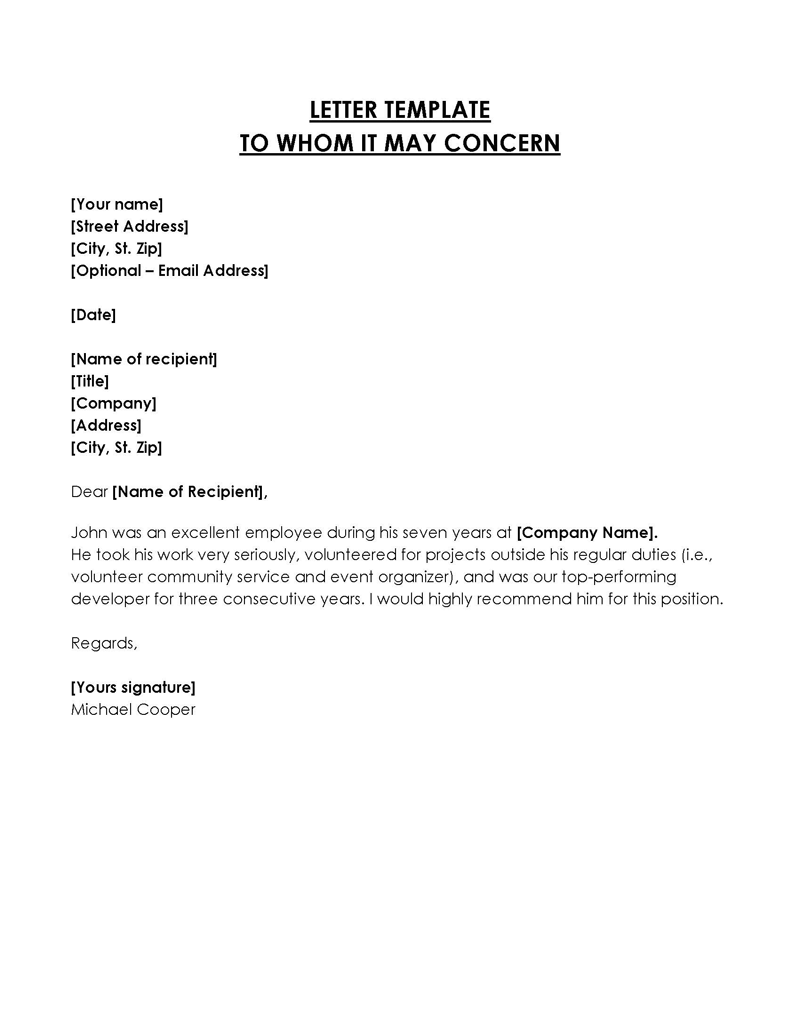
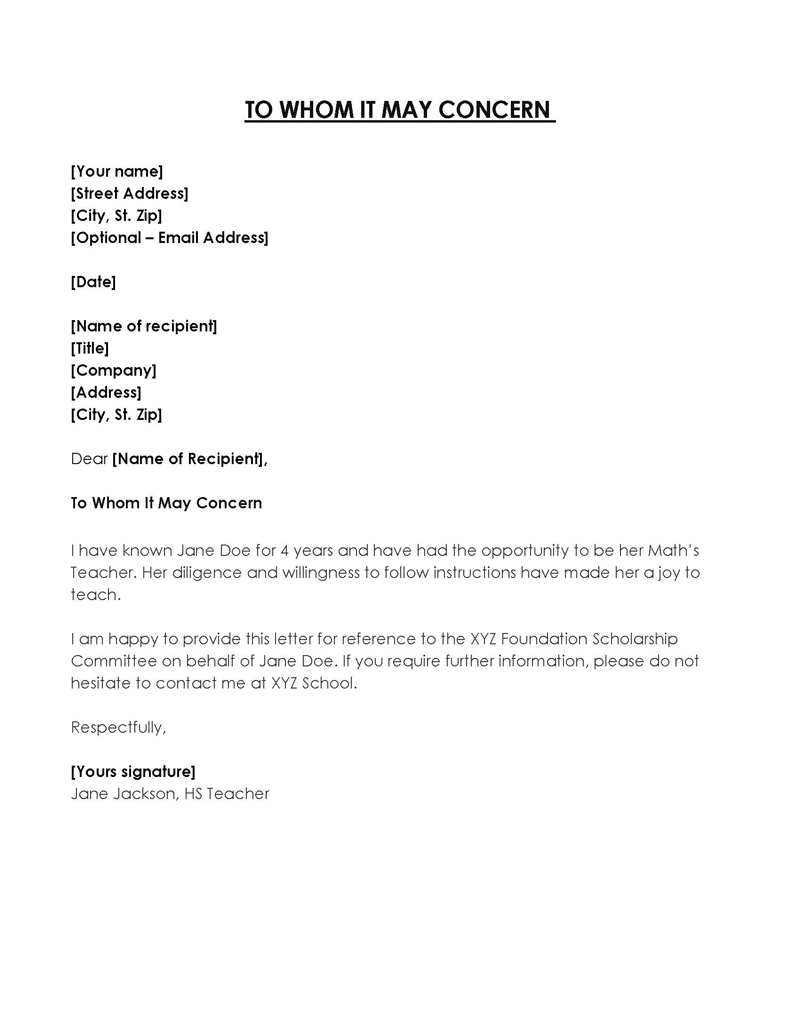
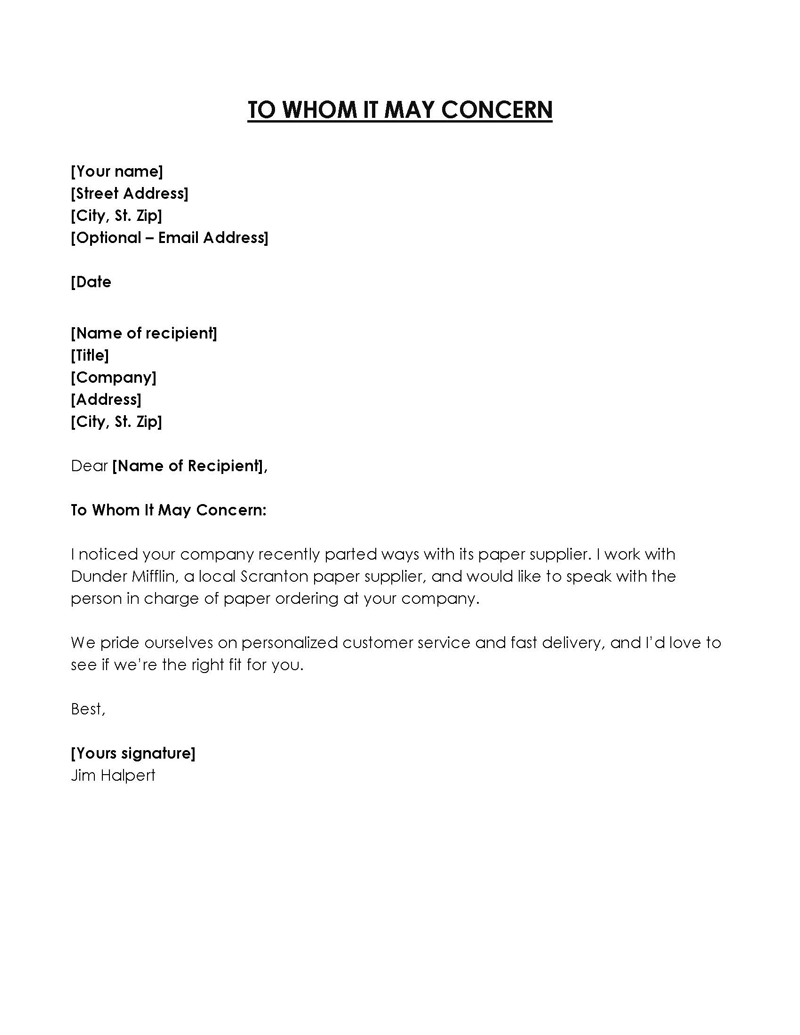
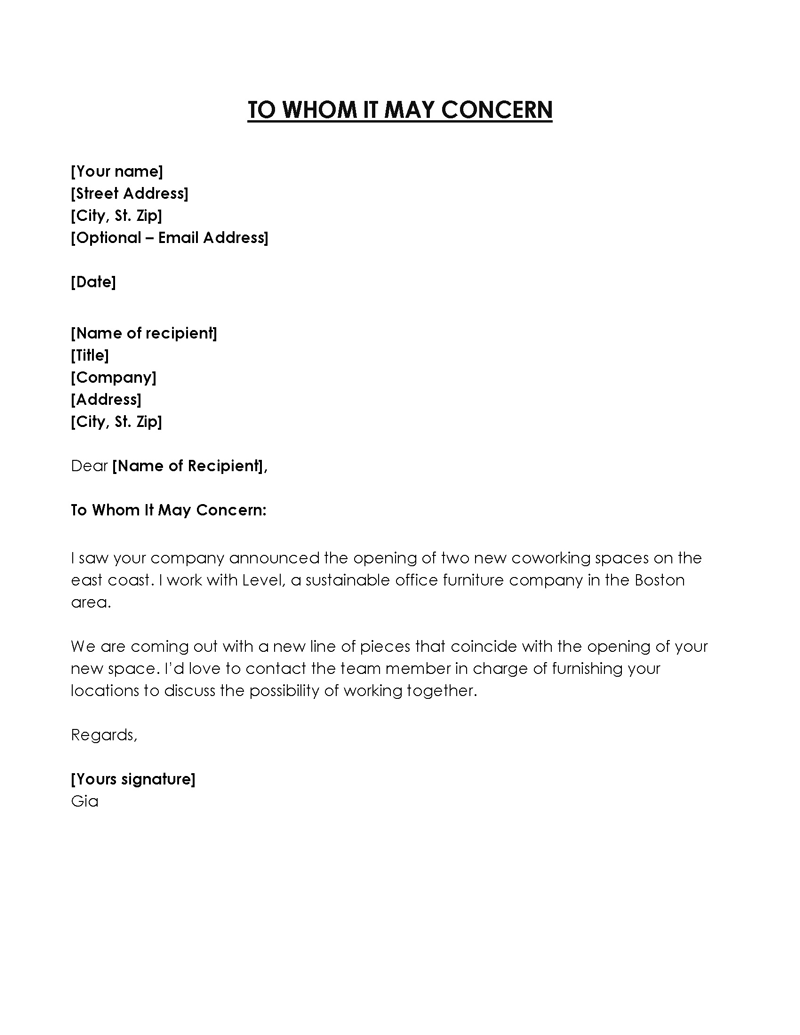
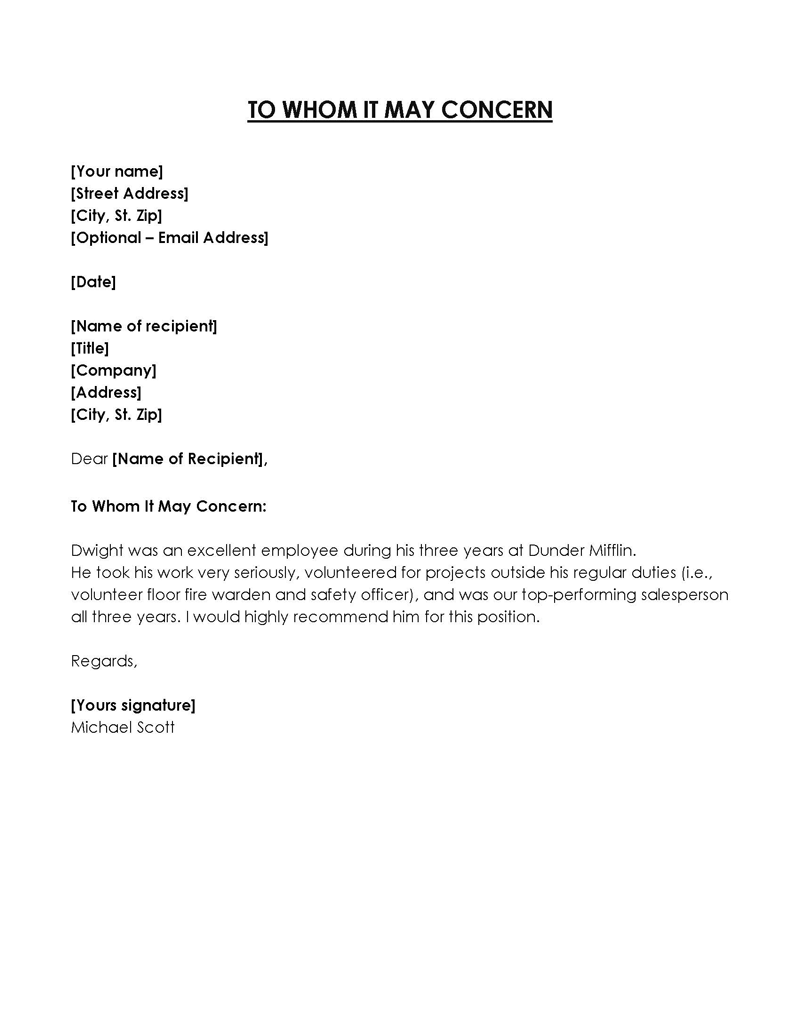
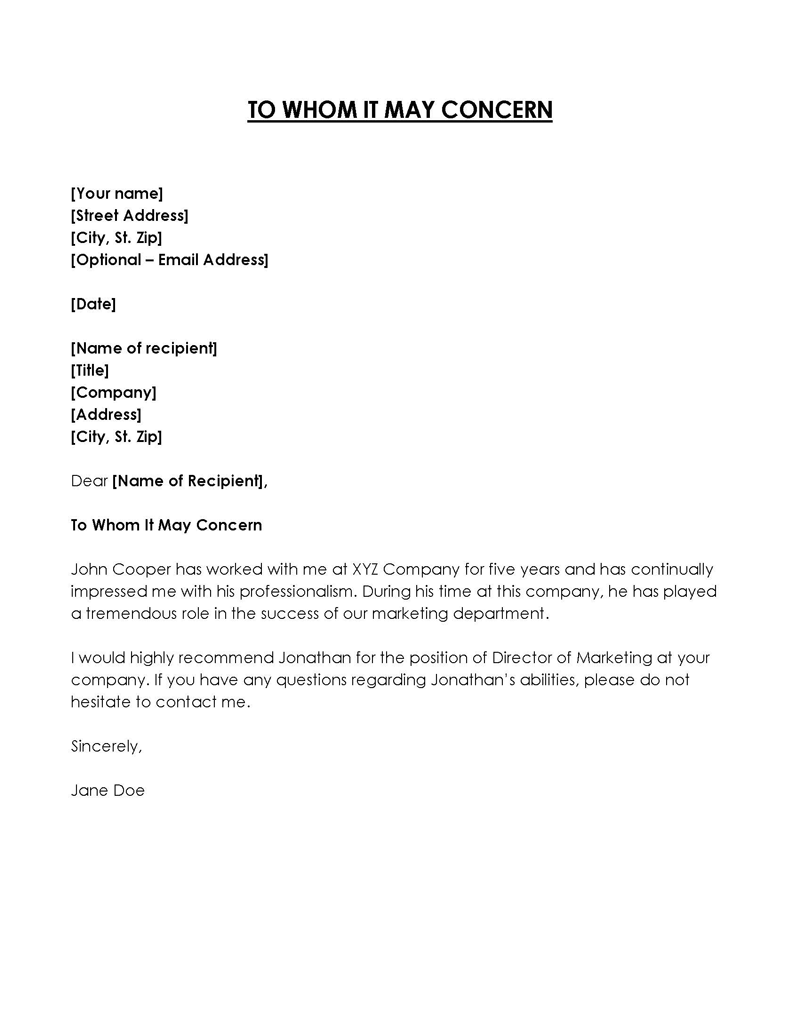
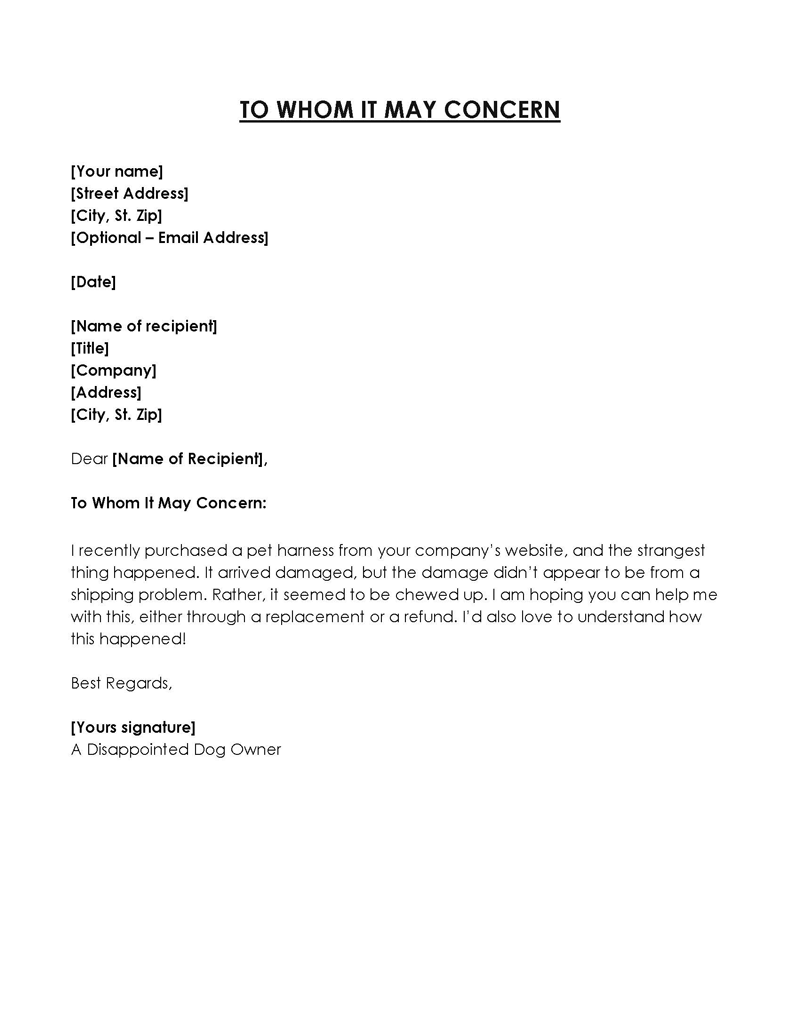
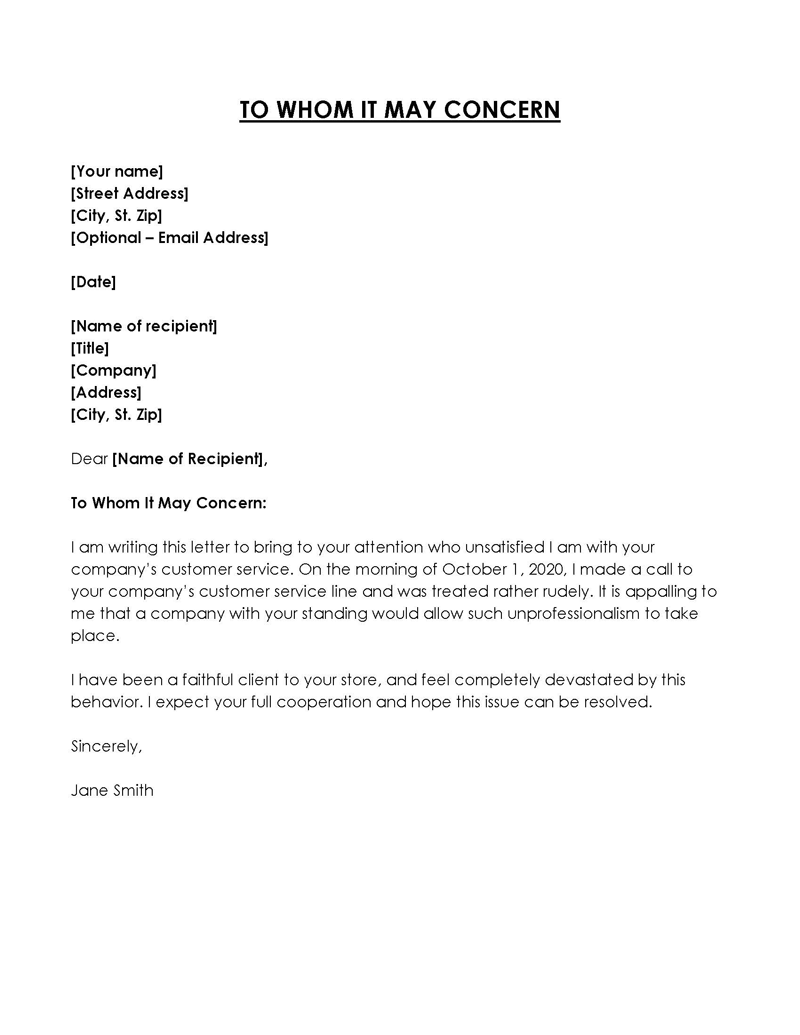
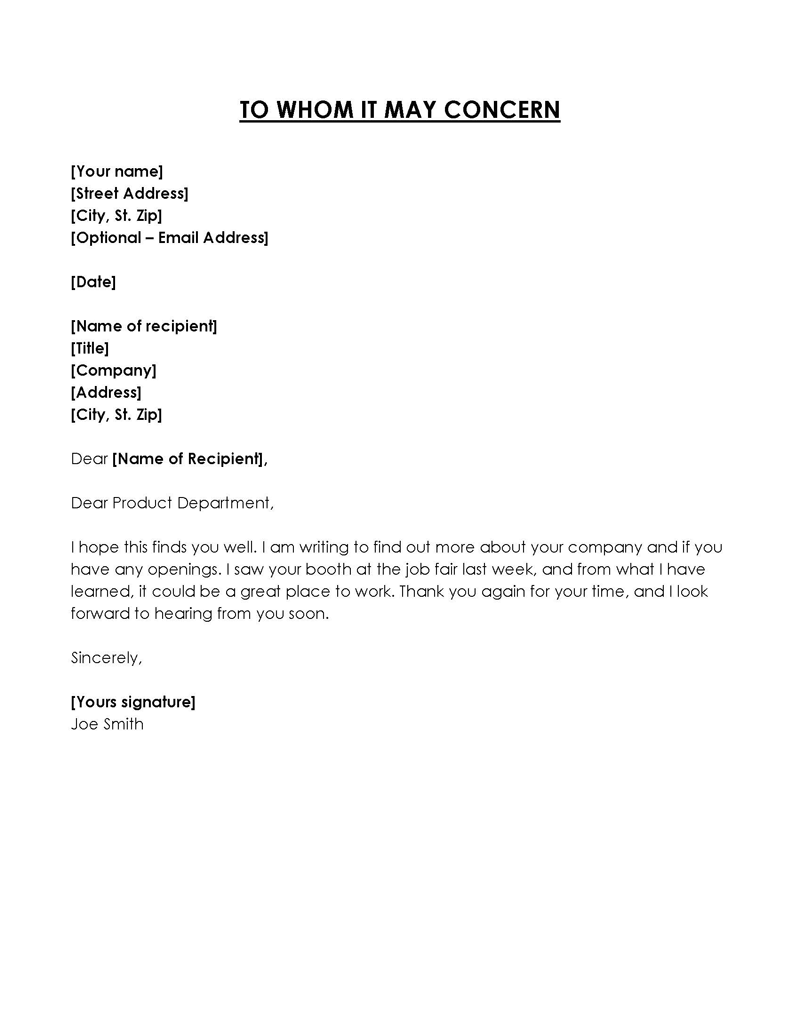
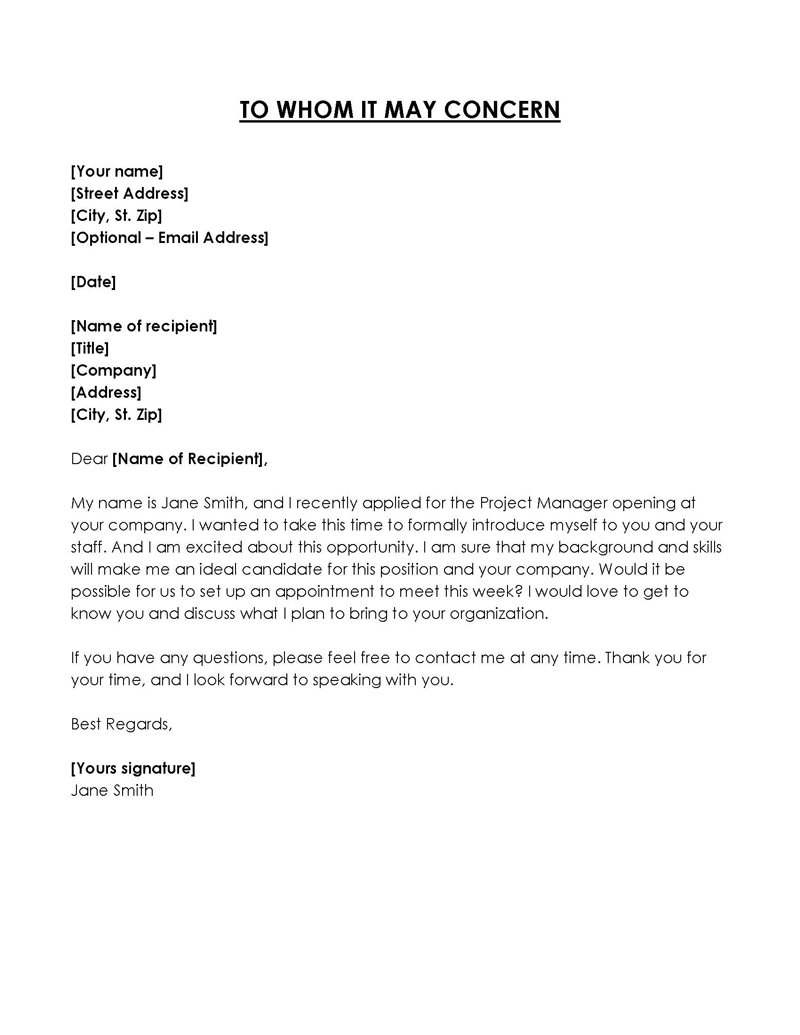
What is the Appropriate Way to Write “To Whom It May Concern”?
The salutation should be formatted in a specific way. The first letter of each word of the salutation should be capitalized. This is because this phrase is used as a substitute for the recipient’s name, which, if written, would have every first letter capitalized as it is a proper noun.
Always use “whom” and not “who” or “whoever.” This is because “whom” in this case is a preposition or object of a verb, thus the need to use it in that manner.
The salutation should also be followed by a colon (:). You should then add a double space before typing the rest of the letter. However, if you are following a particular style guide, be sure to check the specific rules and follow them. Some guides require you to use a comma rather than a colon.
Pros and Cons
The following are the advantages and disadvantages of using “To Whom It May Concern”:
Pros
Some advantages of this generic greeting are the following:
- The letter allows you to send the same one to multiple recipients without changing the greeting.
- It eliminates the risk of misspelling a name, using the wrong gender title, or sending the letter to the wrong person.
- A generic salutation saves you time from researching the names of your recipients.
Cons
The following are some disadvantages of using a generic greeting in a letter:
- Most people will find a generic greeting impolite and rude in business correspondence since, these days, most contact information is easily accessible on company websites. This has made the salutation gradually obsolete.
- Recipients’ information can often be obtained through a simple phone call. So, using a To Whom It May Concern greeting may indicate a lack of interest.
To Whom It May Concern Alternatives
There are alternatives to To Whom It May Concern that can be used similarly. These alternatives are viable in different situations, depending on who you are writing to. Examples of such alternatives include the following:
- Dear Hiring Manager
- Dear Recruiting Department
- Dear Recruiter
- Dear Recruiting Manager
- Dear Customer Service Manager
- Dear [Team or Department]
- Dear HR manager
- Dear Sir/Madam
- Dear Hiring Committee
- Dear [Department] Manager
- Dear Talent Acquisition Team
- Dear Human Resources Team
- Dear Personnel Manager
- Dear [job title you are applying for] Manager/Committee/hiring Team
Frequently Asked Questions
To correctly write the salutation, capitalize on the first letter of each word. Then, insert a colon after the salutation and two spaces before beginning the letter’s introduction.
Using this format is not rude. It is a formally acceptable way of addressing recipients with whom you are not familiar.
Using “To whom it may concern” in an email can come across as impersonal and may not be the best option. In an email, it is better to address the recipient by their name or use a more specific greeting. If you are unsure about who the recipient is, you can try to do some research to find their name or use a more general greeting such as “Dear Hiring Manager” or “Dear [company name] team.”




